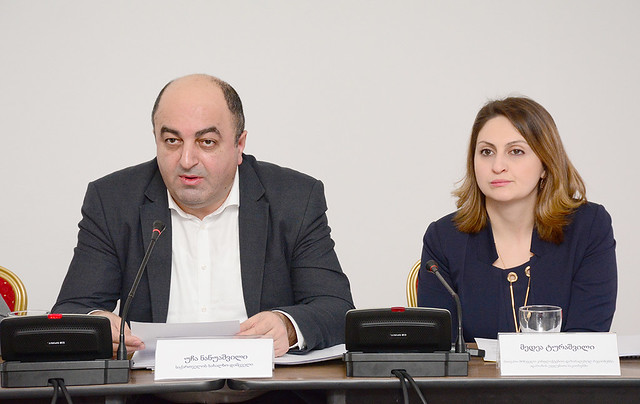Public Defender's Special Report on Women's and Children's Rights in Conflict-affected Regions
On February 10, 2017, the Public Defender of Georgia presented a special report on the situation women's and children's rights in Abkhazia and the Tskhinvali region in 2014-2016 to the media.
Conflicts have particularly severe impact on women's and children's health. Trauma of conflict and poor social conditions directly cause domestic violence, the victims of which most often are women and children. However, the number of non-governmental organizations that work on the women's and children's rights in these regions is low. No systematic monitoring or study of the situation is carried out.
Domestic violence is one of the most difficult and, at the same time, hidden problems in the Abkhazian and South Ossetia societies. Victims of domestic violence are not seriously regarded by the police, who refrain from intervening in such cases. According to the Public Defender, small part of female victims manages to leave Abkhazia for the territory controlled by Georgia and enjoy the services available here. Existence of a shelter for victims of domestic violence in Zugdidi would improve the situation, as it would be geographically more available for the victims from Abkhazia.
Prohibition of abortion in early 2016 is a problematic issue, which was negatively assessed both by the Abkhaz civil society and the de facto government agencies. Given that contraceptives are not widespread on the territory of Abkhazia, the ban on abortion will likely lead to an increase in the number of spontaneous abortions, which is dangerous to woman's life and health.
Protection of child's rights in conflict zones mainly relies on local and international organizations, which only have small-scale initiatives.
Serious problems exist in the occupied territories in terms of equipment of hospitals and qualifications of medical personnel, which worsens the children's right to health. For example, Gali district hospitals do not have reanimation units at all. As for children’s reanimation unit, it does exist even in Zugdidi. The latter does not have ambulance vehicles appropriate for kids either and it is necessary to take children to Kutaisi or Tbilisi.
Another problem in terms of movement of juveniles is the lack of required documents. The child, at least one of the parents of which does not have an Abkhazian passport, cannot get a birth certificate or any identity document. Due to this problem, children are unable to cross the dividing line and get Georgian citizenship documents. For these reasons, there are juveniles in the Gali, Ochamchire and Tkvarcheli districts, who have neither Abkhazian nor Georgian documents.
The Public Defender is concerned about the fact that the lack of documents leads to frequent detentions of juveniles, who try to indirectly cross the dividing line through bypasses. The Public Defender was informed of a number of cases, when children, including infants, and their parents became victims of irrelevant and degrading treatment, such as verbal abuse and deprivation of food and water, during detentions at Russian military bases.
In addition, there are many cases when juvenile patients cross the dividing line through bypasses, for which they have to spend 2-3 days in the villages along the dividing line in order to find suitable time for moving on. This, in frequent cases, causes worsening of their health condition and similar cases should be assessed as a violation of the right to health.
The Public Defender’s report also provides recommendations concerning the above-mentioned problems.
See the electronic version of the special report (from page 31)
См. электронную версию специального отчета
















